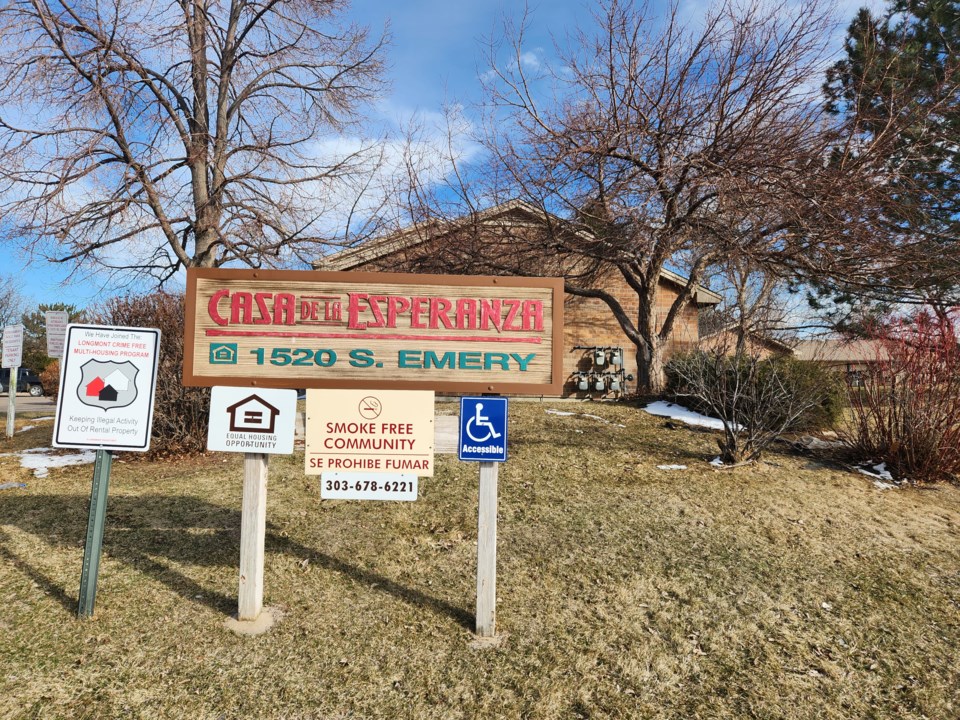A residential complex in Longmont dedicated to housing and supporting agricultural workers will be getting a boost of funds to improve conditions and offer more affordable housing options for Boulder County residents.
Casa de la Esperanza, meaning House of Hope, is a 32-unit residential complex in southeast Longmont owned and managed by the Boulder County Housing Authority.
The agency plans to use $350,000 of American Rescue Plan Act funds in a two-phased approach that will boost Casa’s ability to serve families and children by updating the property’s loan requirements and then repairing and upgrading the structure.
“These American Rescue Plan Act funds will help us better serve the community by supporting our work to expand access to our affordable homes for those who desperately need them and covering costs of renovating the Casa de la Esperanza building to make it much more comfortable and welcoming,” BCHA Director Norrie Boyd said in a release. “It’s hard to imagine a better use of ARPA funds that were set aside to help our communities recover from the devastation of the past several years of the COVID-19 pandemic.”
Casa de la Esperanza was founded in the early 1990s to serve as a solution for migrant families, primarily from Mexico and other Latin American countries, who played a crucial role in Boulder County’s agricultural industry.
However, to be eligible for a Casa home, the USDA Rural Development Loan Program requires that the head of the household must work in the agricultural sector and have an annual income of less than $62,700.
“Farm workers earn more in Boulder County than they used to, but we haven’t been able to adjust the income qualifications for that growth, and that has become a challenge for Casa de la Esperanza,” Boyd said.
In addition to the loan income requirements, the household composition must be that of an average family size of four. Since 2017, Casa has seen major vacancies due to the shift of farmworker families coming to the county.
BCHA Housing Director Tanya Jimenez explained that the community was different when Casa was built, with a lot of farmworkers in the area with larger families able to qualify for the housing.
“Today's needs are different in that we're not seeing large families in farmworker households, and since relatives don’t tend to come with agricultural workers anymore, we see more single individuals,” she said.
Now, the increased cost of living is a key factor for agricultural families that want to stay in Boulder County, especially seasonal farm workers who want to find stability in a new community as housing prices continue to rise in the area.
“Many families are making the hard choice of whether they can continue to live and work in Boulder County, and US Census data and what we hear directly from people we serve make it clear that the county is losing family households,” Jimenez said. “This is especially true for communities of color in Boulder County.”
Casa de la Esperanza is also an educational center with learning opportunities through afterschool and summer programming, academic support services, enrichment opportunities and access to resources.
“It’s so important to house people, and we also need to provide resources for them so that we can stop the cycle of poverty and make sure that the children are getting through the school systems, graduating high schools and pursuing other higher education," said Vanessa Arritola, program coordinator at Casa de la Esperanza Learning Center.



